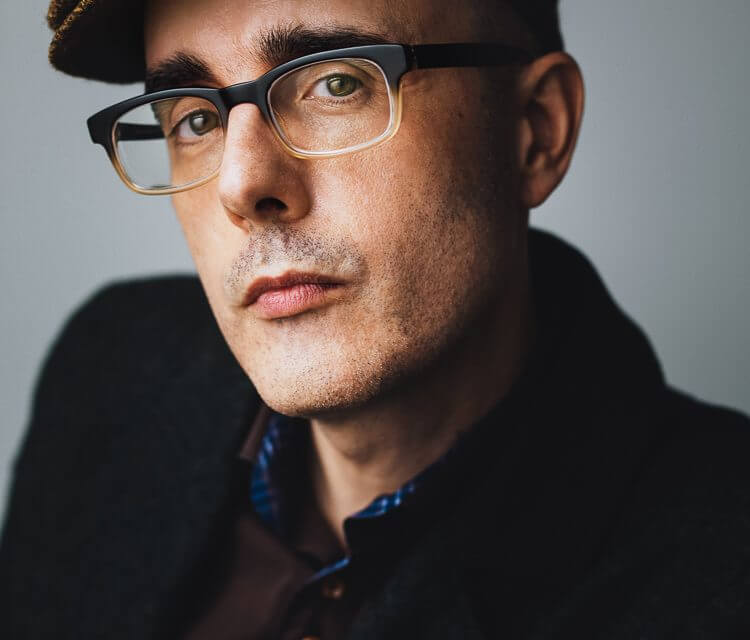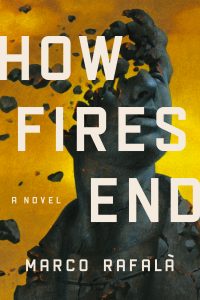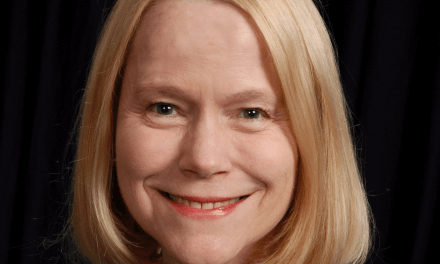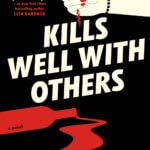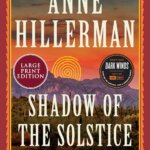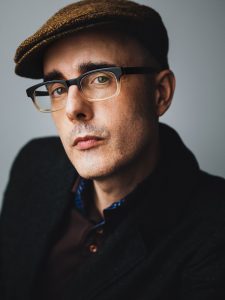
SS: Welcome, Marco. What in your childhood contributed to you becoming a writer?
MR: As a child in the 1980s, when I discovered Dungeons and Dragons it opened up a whole new world. I’d spend hours creating my own fantasy worlds with thousands of years of imagined history filled with ancient kingdoms in decline and mysterious ruins waiting to be explored. I learned how important it was to leave space for the characters (in this case the players) to move through that fictional world and change it along the way. So, as I was running a game, I had to let go and allow the story to go in new and unexpected directions. Without even knowing it, this was my first lesson in writing fiction—one that’s still central to how I write today.
SS: What are you working on at the moment?
MR: I’m working on a new novel that came out of a line of dialogue in How Fires End. In Melilli, Sicily, during the Second World War, an Italian soldier is urging a local family to flee the fighting. But the father refuses, explaining: “Soldiers came to our village last week. We prayed for help, and you know what happened? An American fell from the sky, pulled out of the clouds by the saint.” This line was inspired by a story my father told me about a family in Melilli who helped hide an American paratrooper during the war. And so now I’m exploring where it takes me.
SS: Which of your characters surprised you the most for the decisions they made?
MR: Nella was absolutely the most surprising and unexpected character. It’s hard to talk about her role without giving spoilers, so I’ll just say that there are several moments that I didn’t see coming.
SS: Do you ever incorporate something that happened to you in real life into your novels?
MR: I drew upon my own experiences growing up as a Sicilian-American in Middletown, Connecticut. But more than that, I was influenced by family history and the folklore of Melilli, the Sicilian village my family came from. From these seeds, characters grew, and a story began to take shape. In some places I had to reimagine family history and the history of Melilli to suit the needs of the novel—being careful to also protect that history where needed.
SS: Khaled Hosseini (The Kite Runner) feels he discovers a story rather than creates it. Are you a plotter? Or do let the novel develop organically?
MR: I like to be surprised as I write. I start with characters, put them in a situation, and then see what happens. The discovery is what gets me excited. In this way, my debut novel grew organically.
SS: What are you most challenged by these days?
MR: I’m in the middle of touring and promoting How Fires End so the most challenging thing for me (aside from overcoming my social anxieties) is finding quiet time to read and write.
SS: What’s something memorable you’ve heard from your readers/fans? What’s been the best compliment?
MR: A Sicilian-American reader recently tweeted that How Fires End possessed an “unbearable beauty” and that “the writing does justice to that complex combination of violence and vulnerability in Sicilian masculinity—just one of its many feats. And I’m only halfway through.” I’m not sure there’s any higher praise than that.
SS: Can you share with us a bit about the moment when the idea for your novel first popped into your head? Did the idea come to you all at once, or did different pieces of the story come to you over time?
MR: The novel is inspired by my father’s stories about his life in Sicily during and after the Second World War. Despite all the pain and hardships there, his hometown of Melilli seemed like a wonderful place, almost magical to me. I was fascinated with this village my father loved and missed so dearly. Somewhere there, in Melilli, was a way into understanding him.
I went to Melilli with my father for the first time in 2001—and I don’t think I ever would have written the book if we hadn’t made that trip. Being in Melilli—walking those winding streets, wandering through the almond orchard he tended as a boy with his father, seeing the graves of two young cousins killed during the war while playing with an unexploded shell—I understood why my father’s stories stuck with me and what they meant to me. The Italian journalist, Luigi Barzini once said: “Sicily is notoriously an astoundingly improbable island where outlandish and terrifying things happen every day, everywhere, to everyone as a matter of course, the kind of things novelists elsewhere have to invent with great labor and waste of time.”
I started writing about Sicily and Sicilian immigrants after that trip. At first, I thought I was writing short stories. But an insightful writing instructor told me I was writing a novel—and that I was a long-distance runner not a sprinter. He was right. It took me ten years to write the book.
SS: Was the decision of how to structure the novel obvious?
MR: The structure of the novel was hard to get right, and I took a very long road finding it. The first scene I wrote is now in the middle of the book. It’s the moment Salvatore witnesses his brothers playing with an unexploded shell. For a long time, I thought that was where the book started, and that Salvatore would be the only narrator. But as I kept writing, I got to a point where I realized there was more story that Salvatore didn’t know, or couldn’t tell. So I began writing from his American-born son’s perspective. This is when I knew I had a stereoscopic narrative on my hands—a much more complicated structure than I had originally envisioned for the book. The narratives for Vincenzo and Nella grew from this slow realization that these characters each had a piece of the story to tell.
SS: How did you make the decision regarding point(s) of view?
MR: I began my first draft in third person, but the pages were lifeless. A friend suggested I try first person, and that’s when the characters and the story began to feel as alive on the page as they felt in my head.
SS: If you stray from a chronological time frame, did you write the book in the order in which it appears on the page, or did you write it in a chronological order and later rearrange?
MR: I learned early on that I write out of order. Since the novel spans generations—from World War II Sicily to Connecticut in the 1980s—that made understanding how to handle time a challenge. The discovery process of finding each of the three first-person narrators and the fourth, third-person prologue and epilogue didn’t make this process any easier. But the story demanded a certain structure. Once I understood that the novel began in the 1980s and circled back into the past the chronological order and order of each narrator made sense to me.
SS: Where and when is your book set? How did you decide on the setting? The timeframe?
MR: How Fires End is primarily set in Middletown, Connecticut and Melilli, Sicily, though there are several chapters set in Rome. Since the book is inspired by my father’s stories, I knew the setting and time period in a way that felt very natural. And, with my father, I had a primary source I could call on the phone any time.
LIGHTNING ROUND:
Pantser or Plotter? Pantser
Your favorite guilty pleasure? Buying and playing tabletop role-playing games
What is your favorite historical movie? The Bicycle Thief
********************
How Fires End is available through:
Amazon | B&N
Follow Marco here on social media:
Website | Goodreads | TinyLetter | Instagram | Twitter | Facebook
